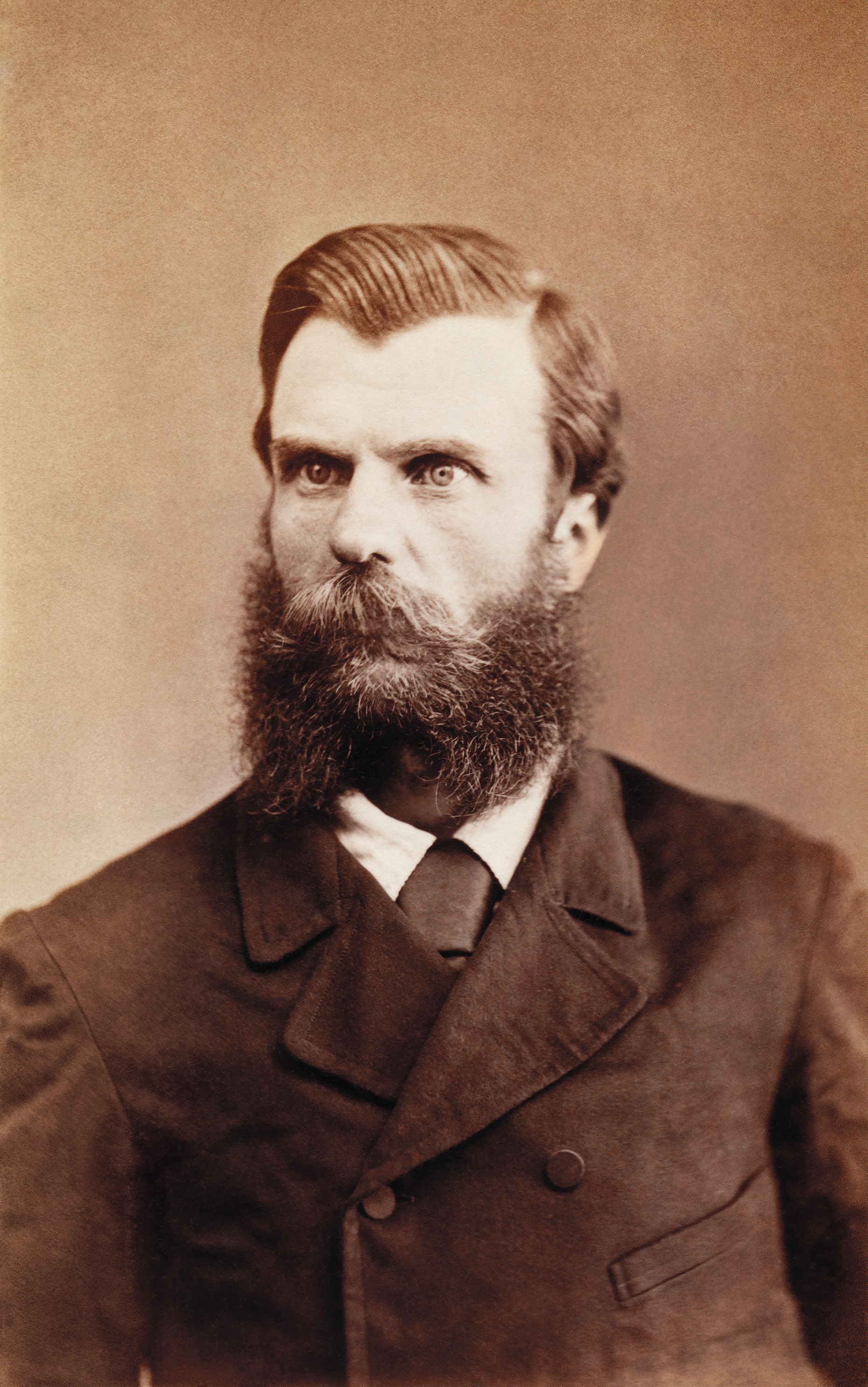Moonlite, Captain (1842-1880), was an Irish-born Australian bushranger (outlaw). His real name was Andrew George Scott. Crimes attributed to Scott and his gang included robbery and murder. Scott began using the name “Captain Moonlite”—sometimes spelled “Captain Moonlight”—in the 1860’s.

Scott was born in Rathfriland, Ireland (now in Northern Ireland), in 1842. He moved with his family to Auckland, New Zealand, probably arriving in 1861. He held several positions in local militias (citizen armies) there before moving to Australia in early 1868.
In July 1868, Scott became a lay preacher at a church in Bacchus Marsh, near Melbourne. The following year, he was transferred to Mount Egerton (also known as Egerton), near Ballarat. On May 8, 1869, Scott robbed a bank in Mount Egerton. He composed a note to the authorities and signed it “Captain Moonlite.” The bank manager, who had recognized Scott’s voice during the robbery, alerted the police. Scott convinced the police of his innocence and left Mount Egerton several months later.
In late 1870, Scott was arrested in Sydney for passing illegal checks. While Scott was in prison, investigators discovered evidence that connected him with the Mount Egerton bank robbery. Scott was released from prison in early 1872, but he was quickly arrested again and charged with the robbery. He escaped from custody while awaiting trial but was soon recaptured. Scott was found guilty and sentenced to 10 years in prison, plus an additional year for escaping custody.
Scott was released from prison in March 1879, before the completion of his full sentence. He began lecturing on prison conditions in Victoria. Later that year, Scott and a group of friends went to New South Wales. On Friday, November 14, Scott visited a station (ranch) in Wantabadgery, near Wagga Wagga. He asked for work, but was turned away. The group returned the next day and captured the station. They kept the people at the station as hostages. Over the next few days, they captured other people from the surrounding area. They eventually held more than 30 hostages.
One of the hostages managed to escape and alerted the police in Wagga Wagga on Sunday evening. Police approached the station in the early hours of Monday, November 17. Scott’s gang opened fire, causing the officers to flee. The gang then moved to a nearby farmhouse. The police tracked the group down and called on them to surrender. Scott refused, and a gunfight erupted. Two members of Scott’s gang were killed. Sensing that the fight was lost, Scott surrendered to the police. A police constable died of wounds sustained in the fight.
Scott and the other three surviving members of his gang were found guilty of murdering the constable. They were sentenced to death. Two members of Scott’s gang had their sentences reduced to life in prison. Scott and one of his other associates were hanged on Jan. 20, 1880.
